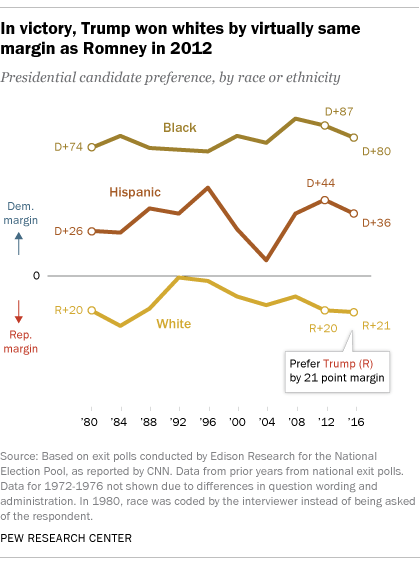Minorities in the U.S. have been historically underrepresented in polling and medical research, with Asian Americans sometimes falling out of the picture completely.
Some large polls -- like the 2016 exit polls by Edison Research for the National Election Pool -- discuss issues among white, Black and Latino Americans, but do not include Asians.
In a more recent NPR/PBS/Marist Poll on race relations in the United States, Asians were not listed under adults categorized by race.
When it comes to medical research, there is a discrepancy in clinical trials, said Dr. Mishal Reja, an internal medicine physician and ABC News medical contributor, with Asian Americans often underrepresented. This is especially problematic as members of the AAPI community are at increased risk of cancer, diabetes and liver conditions.
Why is it so difficult to gather data on AAPI communities?
One big reason why it's so difficult to gather data on AAPI communities is because Asian Americans make up just 6% of the total U.S. population, while Black Americans make up 13.4% and Hispanic Americans make up 18.5%, according to the Census Bureau.
According to Pew Research, a typical representative survey has 1,000 adult respondents, which provides a reasonably accurate reflection of the larger population. A larger sample would incur more cost without proportionally meaningful improvement of the marginal error.
The common rule is to not publish subgroup polls with fewer than 100 respondents, according to Pew. So in a representative survey of 1,000 U.S. adults, you would expect 60 Asians polled following demographics, which is under that 100-respondent limit.
This was the case with the Marist Poll, which was a survey of 1,249 adults where a subgroup would require around 8.5% of the overall survey sample size.
"To report them as a separate group would not be an accurate representation of that separate group," Dr. Lee M. Miringoff, Director of The Marist College Institute for Public Opinion told ABC News.
Additionally, although 38% of both U.S. Asians and Hispanics lack proficiency in English, the Asian demographic has more linguistic diversity, while pollsters can reach many in the Hispanic population with a single Spanish translation, Gary Langer, president of Langer Research Associates and director of polling at ABC News, explained.
There is also a lack of culturally sensitive materials and recruitment efforts that tailor to each unique ethnic group within the AAPI community, Reja said.
And mistrust is a roadblock, especially when it comes to medical research. Similar to Black Americans, Asian Americans have faced a history of medical racism. For example, in 1899, when the Bubonic plague reached Honolulu's Chinatown, the Board of Health set a controlled fire to burn buildings that displaced and injured almost exclusively Asian residents, and there was mistreatment targeted towards Asians.
This trauma was passed down from generation to generation and the community began to distrust governments, Dr. Yulin Hswen, an assistant professor in the Department of Epidemiology and Biostatistics at UCSF, explained.
The country saw the racialization of disease play out again when the COVID-19 pandemic started in 2020.
Today, Hswen said there is not only a lack of racial diversity among medical research workers, but also "a lack of cultural competency in general within the medical community and understanding and being responsive to certain cultural needs," which contributes to mistrust and a lack of representation.
Why does it matter?
In order to engage the electorate and encourage civic responsibility, people need to see their voices represented, Howard Shih, director of research and policy at Asian American Federation, said.
"It's really important to know what are the major concerns of the community. We can't design and affect public policies without understanding what the needs of a community are," Shih added.
The reason why having representative medical data matters "is because what you see from the outcomes of clinical trials directly impacts medical care," Reja told ABC News.
"We know that genetic differences have an impact on medical outcomes so we're doing a disservice to our patients by not including them in statistics," he explained.
Since a 1985 government report concluded AAPI populations are healthier than all other racial groups in the U.S., there has been a lack of research funding for the community, as a 2019 Jama Network study found.
That paucity of funding contributes to health care disparities, Reja said.
While the "model minority" myth creates the idea that Asian Americans are well off, the group has the highest income inequality of any other race in the U.S., according to Pew Research. Because health is tied to socioeconomic status, Hswen said, "a larger percentage of Asians are actually more at risk for serious health conditions than perceived."
What can be done about it?
Medical experts and institutions need to gain back the trust of the community, Hswen said, through communication and focus groups, for instance.
"That means really working on the ground with people in the communities and having people from the medical communities come to them," she said.
Targeted recruitment in predominantly Asian communities, partnerships with AAPI organizations and increased hires and training of culturally sensitive health providers and researchers are all important, Reja told ABC News.
When it comes to polling, organizations like the Asian American Federation actively work with government institutions to ensure they are collecting information at the right demographic level with appropriate tools. For the 2020 Census, they worked with community groups and relied on trusted voices of those organizations.
Others, like the National Asian American Survey, a nonpartisan polling organization, are creating their own surveys.
"That just shows you how overlooked it is that we as a community have to do our own or create our own polling essentially to get our voices heard," Shih said.
"asian" - Google News
May 22, 2021 at 08:11PM
https://ift.tt/3fawAwX
Why Asian Americans are often underrepresented in polling and research - ABC News
"asian" - Google News
https://ift.tt/2STmru2
Shoes Man Tutorial
Pos News Update
Meme Update
Korean Entertainment News
Japan News Update


No comments:
Post a Comment